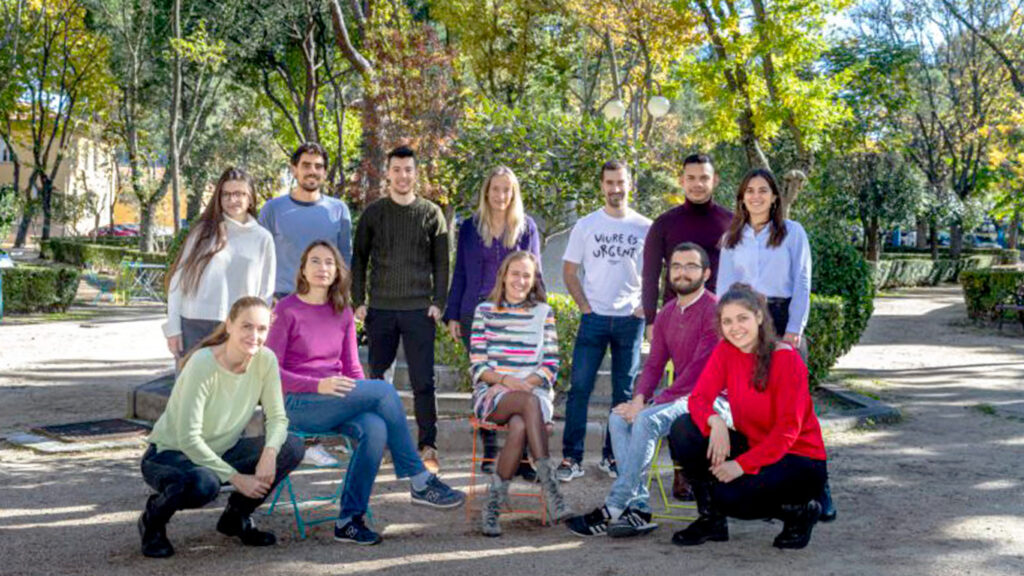The drug Denosumab is currently used for osteoporosis and bone metastases treatment. For decade, its potential therapeutic benefit in breast cancer treatment has also been studied. However, with contradictory clinical data, the survival benefit for breast cancer patients is unclear.
To select the patients who could benefit from this drug, researchers from the National Cancer Research Center (CNIO) and the Bellvitge Biomedical Research Institute (IDIBELL), led by Eva González-Suárez, have analyzed the expression of the protein RANK and its ligand RANKL in more than 2,000 breast tumors, 777 of them without expression of hormone receptors, from four independent cohorts.
Their results show that the expression of the RANK protein is more frequent in tumors without hormone receptors, where it was associated with a poor prognosis and a poor response to chemotherapy. In addition, the researchers observed a greater activation of the RANK pathway in breast tumors after menopause. Thus, the inhibitor Denosumab added to the basic treatment could have greater therapeutic value in postmenopausal patients with breast tumors hormone-negative and RANK protein expression.
Hormone receptor-negative tumors, in which the cancer cells do not contain estrogen and progesterone receptors, have a poorer prognosis and limited treatment options. “Given the heterogeneity of hormone-negative breast tumors, biomarkers that discriminate the patients’ prognosis are essential, especially if these markers make it possible to choose the most appropriate treatment,” says Eva González-Suárez, head of the Group of Transformation and Metastasis at the CNIO and researcher at IDIBELL. The next step would be “to design a clinical trial in patients with hormone-negative tumors that express the RANK receptor and in pre and postmenopause.”
Over 2,000 samples from four cohorts
In this study, Marina Ciscar and Eva M. Trinidad, co-first authors of the study, joined efforts to determine the therapeutic value of the RANK pathway in breast cancer. Ciscar and other members of González-Suárez’s team analyzed these proteins in more than 2,000 breast tumor samples from four old cohorts, mostly from Emad Rakha’s team at the University of Nottingham, where they have followed patients for two decades, and two Spanish, from the Bellvitge Biomedical Research Institute (IDIBELL) and the CNIO.
Ciscar and her collaborators found that in 40% of hormone-negative tumors, the RANK receptor was expressed, and this expression was associated with a poorer prognosis and survival of the patients.
For her part, Eva M. Trinidad used experimental mouse models in which she implanted a small fragment of human tumors in the same organ of origin. In these models, RANKL inhibition reduced human tumor cell proliferation and plasticity, regulated tumor immunity and metabolism, and improved response to chemotherapy. In this way, the researchers concluded that the RANK pathway could serve as a biomarker and also as a therapeutic target.
The Bellvitge Biomedical Research Institute (IDIBELL) is a biomedical research center created in 2004. It is participated by the Bellvitge University Hospital and the Viladecans Hospital of the Catalan Institute of Health, the Catalan Institute of Oncology, the University of Barcelona and the City Council of L’Hospitalet de Llobregat.
IDIBELL is a member of the Campus of International Excellence of the University of Barcelona HUBc and is part of the CERCA institution of the Generalitat de Catalunya. In 2009 it became one of the first five Spanish research centers accredited as a health research institute by the Carlos III Health Institute. In addition, it is part of the “HR Excellence in Research” program of the European Union and is a member of EATRIS and REGIC. Since 2018, IDIBELL has been an Accredited Center of the AECC Scientific Foundation (FCAECC).

